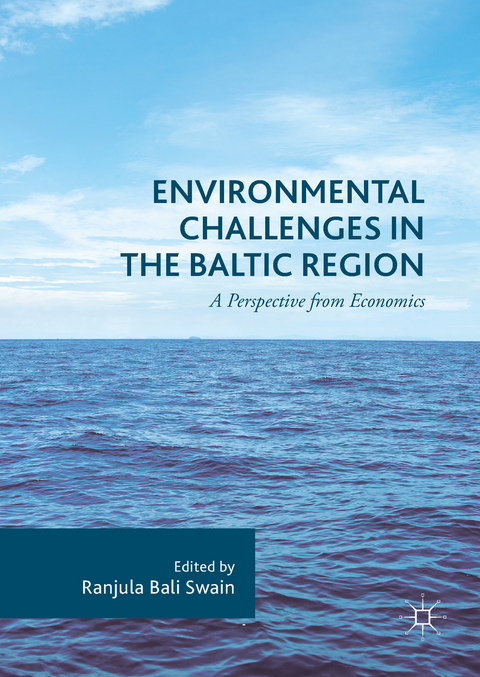
Environmental Challenges in the Baltic Region
Springer International Publishing (Verlag)
978-3-319-56006-9 (ISBN)
Ranjula Bali Swain is a Professor of Economics at the School of Social Science, Södertörn University, Sweden, and a Visiting Professor at Misum (the Mistra Center for Sustainable Markets) at the Stockholm School of Economics, Sweden. She is also affiliated to Uppsala University and the Center for European Research in Microfinance (Cermi) at the Solvay Brussels School of Economics and Management. Her main research interests are in environmental economics, microeconometrics and development economics. Bali Swain has a Doctorate in Economics from Uppsala University, and has worked for the International Labour Organisation (ILO), Geneva in the past.
Chapter 1: Introduction to the Environmental Challenges in the Baltic Region, Ranjula Bali Swain, Stockholm School of Economics and Södertörn University.- Chapter 2: Cost-effective management of a eutrophicated sea in the presence of uncertain technological development and climate change, Ing-Marie Gren, Department of Economics, SLU, Uppsala, Sweden.- Chapter 3: Public policies towards marine protection - benchmarking Estonia to Finland and Sweden, Tea Nõmmann and Sirje Pädam, Stockholm Environment Institute Tallinn and Tallinn University of Technology.- Chapter 4: The Baltic Sea nutrient policies - a review of policy evaluations, Katarina Elofsson, Swedish Agricultural University, Ultuna, Sweden.- Chapter 5: Environmental impacts of rural landscape change in Baltic Sea region, Kari Lehtilä and Patrik Dinnetz, School of Natural Sciences, Technology and Environmental Studies, Södertörn University.- Chapter 6: Developing and testing a decision model supporting approval processes of wind power establishments, Stig Blomskog, School of Social Sciences Södertörn University.- Chapter 7: Behavioral Responses to Cyanobacterial Blooms, Jenny Wallström, Analysis Expert, Enveco Environment Economics AB.- Chapter 8: Attitudes to paying for environmental protection in a cross country setting, Sirje Pädam, Tallinn University of Technology and Ranjula Bali Swain, Stockholm School of Economics & Södertörn University.- Chapter 9: Environmental Resilience in the Baltic Region, Chuan-Zhong Li, Beijer Institute of Ecological Economics and Uppsala University.- Chapter 10: Is international cooperation in the Baltic Sea drainage basin possible? Tomasz Zylicz, Director, Warsaw Ecological Economics Center, University of Warsaw, Poland.
| Erscheinungsdatum | 27.09.2017 |
|---|---|
| Zusatzinfo | XII, 239 p. 10 illus. |
| Verlagsort | Cham |
| Sprache | englisch |
| Maße | 148 x 210 mm |
| Gewicht | 454 g |
| Themenwelt | Naturwissenschaften ► Biologie ► Ökologie / Naturschutz |
| Technik ► Elektrotechnik / Energietechnik | |
| Technik ► Umwelttechnik / Biotechnologie | |
| Wirtschaft ► Volkswirtschaftslehre | |
| Schlagworte | Baltic Sea Action Plan • BSAP • climate change • Cyanobacterial Blooms • Economics • Economics and finance • energy industries & utilities • Energy industries & utilities • Environmental economics • environmental protection • Environmental Resilience • eutrophication • HELCOM • Marine protection • Marine Strategy Framework Directive • MSFD • The Baltic Sea • Waste Water Technology / Water Pollution Control / • Water Quality and Water Pollution • Water supply & treatment • Water supply & treatment • Wind Power |
| ISBN-10 | 3-319-56006-9 / 3319560069 |
| ISBN-13 | 978-3-319-56006-9 / 9783319560069 |
| Zustand | Neuware |
| Haben Sie eine Frage zum Produkt? |
aus dem Bereich


